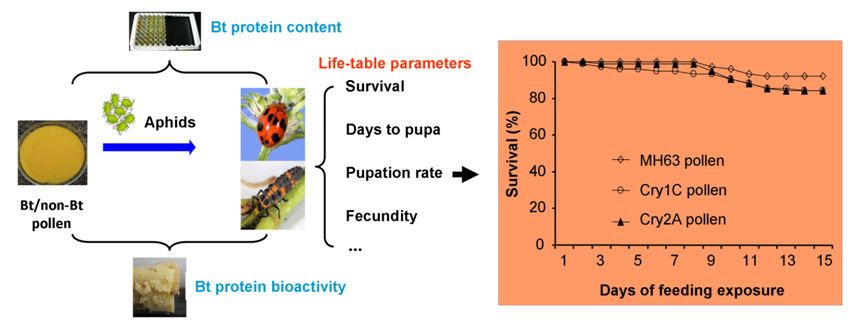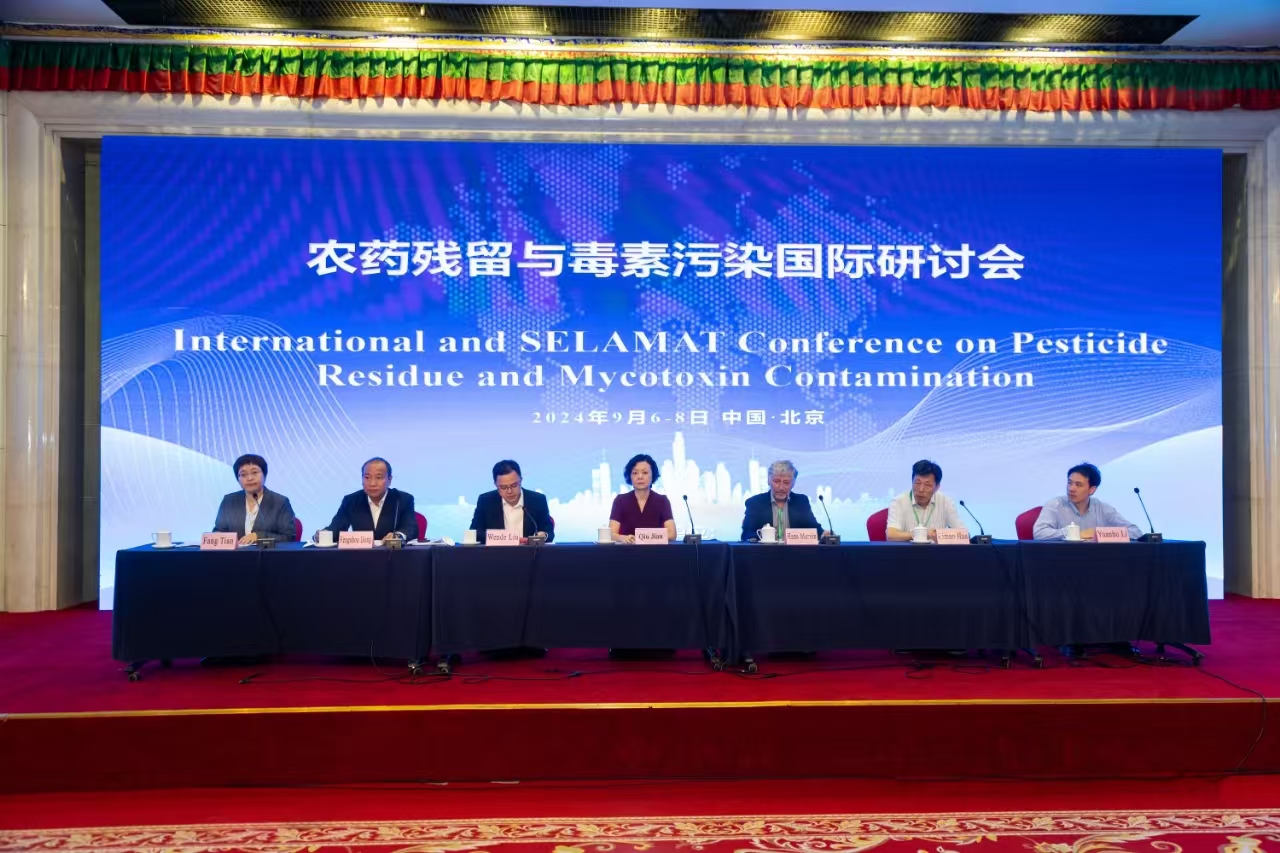Consumption of Bt rice pollen containing Cry1C or Cry2A does not pose a risk to Propylea japonica (Thunberg)
Recently, researchers at State Key Laboratory for Biology of Plant Diseases and Insect Pests, Institute of Plant Protection of CAAS, developed a sound dietary-exposure assay for assessing the potential effects of transgenic plant pollen or insecticidal compounds on a ladybird beetle, Propylea japonica. Using the dietary assay, the potential risk of Bt rice pollen containing Cry1C or Cry2A to this predatory species were critically assessed. The results have been published on online in Scientific Reports on January 8, 2015.
As a pollen feeder, P. japonica would be directly exposed to Cry proteins in Bacillus thuringiensis (Bt)-transgenic rice fields. In addition, the species can be easily reared and is amenable for testing in the laboratory. Therefore P. japonica is a suitable surrogate species for evaluating the potential effects of Bt-transgenic plants on predacious Coccinellidae. In the present study, both laboratory experiments were conducted to investigate potential effects of feeding on Bt rice pollen containing Cry1C or Cry2A protein on P. japonica in the laboratory. In the first experiment, larval developmental time of P. japonica was significantly longer when fed pollen from Bt rice lines rather than control pollen but other life table parameters were not significantly affected. In the second experiment, P. japonica was not affected when fed a rapeseed pollen-based diet containing purified Cry1C or Cry2A at concentrations that were >10-times higher than in pollen, but P. japonica was affected when the diet contained E-64 as a positive control. In both experiments, the stability and bioactivity of the Cry proteins in the food sources and the uptake of the proteins by P. japonica were confirmed. The results show that P. japonica is not sensitive to Cry1C or Cry2A proteins; the effect observed in the first experiment was likely attributable to unknown differences in the nutritional composition of Bt rice pollen. Overall, the data indicates that the growing of Cry1C- or Cry2A-transgenic rice should pose a negligible risk to P. japonica.

Consumption of Bt rice pollen containing Cry1C or Cry2A does not pose a risk to Propylea japonica (Thunberg)
More details are available at the bellow links:
http://www.nature.com/srep/2015/150108/srep07679/full/srep07679.html
By Yunhe LI
Yunheli2012@126.com
-
 China-Laos Training Workshop on Integrated Management of Destructive Crop Pests and Diseases Successfully held in Laos
China-Laos Training Workshop on Integrated Management of Destructive Crop Pests and Diseases Successfully held in Laos -
 New Plant Protection: New challenge and new opportunity for plant protection
New Plant Protection: New challenge and new opportunity for plant protection -
 International and SELAMAT Conference on Pesticide Residue and Mycotoxin Contamination Held in Beijing
International and SELAMAT Conference on Pesticide Residue and Mycotoxin Contamination Held in Beijing -
 CAAS President Meets Chairman of ASEAN FAW Taskforce
CAAS President Meets Chairman of ASEAN FAW Taskforce
